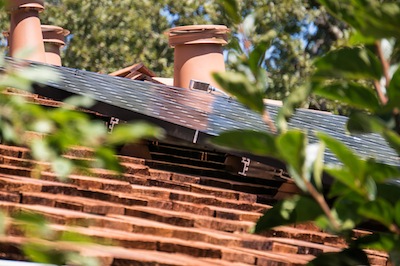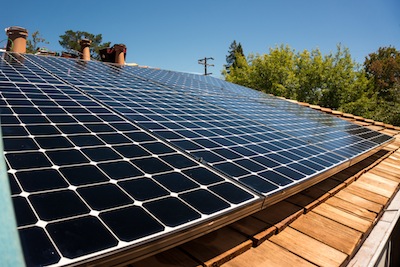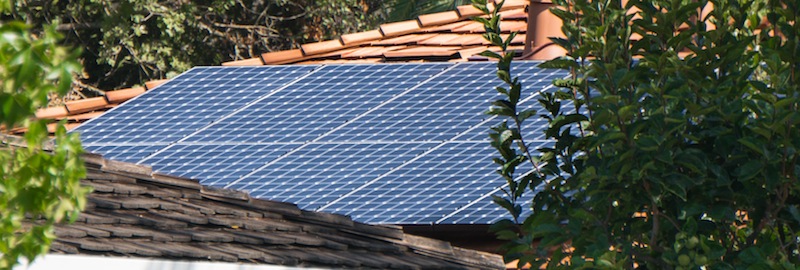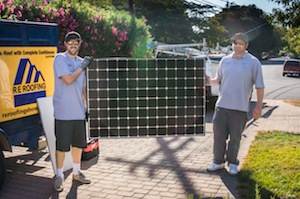|
Our two contractors, R E Roofing and Cobalt Power, worked very well together. After the old roof came off, the Cobalt crew positioned a set of posts for the rails that would hold our SunPower® solar panels. After the new roof was finished, the Cobalt crew delivered the panels and other materials, and started by installing those rails to support two rows of five panels each. Our Cobalt system designer, Kurt Newick, worked out the number and positioning of the panels to produce enough electricity for our house (based on a year's history of electric bills) plus an electric car. The panels were placed on the southwest-facing side of the house to maximize exposure to sunlight. With the rails in place, it was time to move the ten panels to the roof, below. |
 | 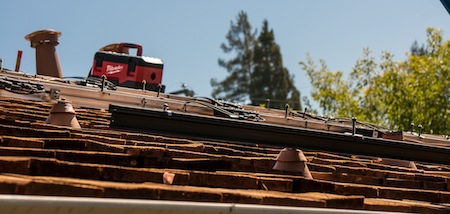 |
|

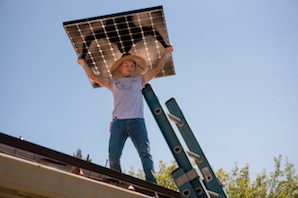
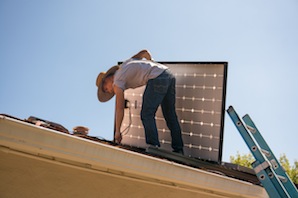
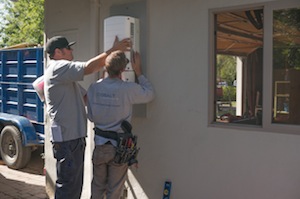 |
At the inverter, it is converted to the required AC voltage and feeds into the power system. Right: Daniel pulls the wires that will run through the new conduit between the panels and the inverter. |  |
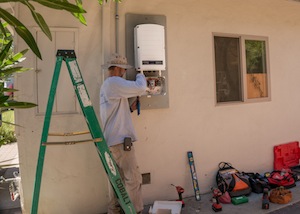 |
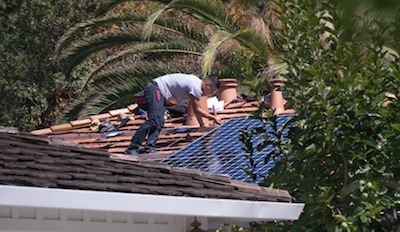
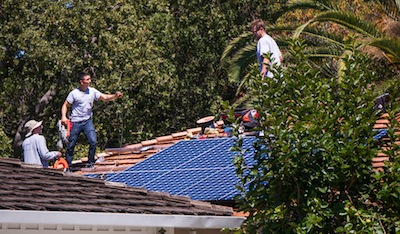
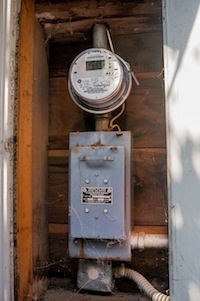
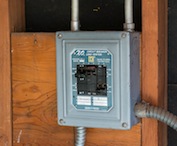
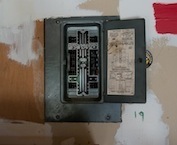
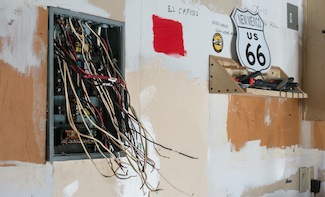
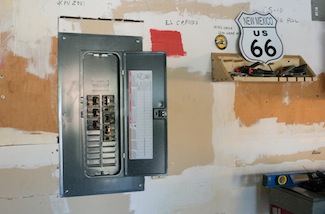
This job also included a significant upgrade of the electrical infrastructure in our house. The pictures on the right show our original 100-amp service, old subpanel and electric meter (plus maybe a few spiders). This was all replaced with a new 200-amp main service panel, 100-amp subpanel, and a new meter.
Left: the new subpanel in work and just about finished
 Finally, Veronica from Cobalt Power Systems flipped the switch and our solar panels started producing electricity! Our system is designed to produce 5600 kilowatt hours per year. Not only will that eliminate our electric bills, but, because of the efficiency of our panels and the timing of their use, we expect that the power company will actually owe us about $175 this year for the power we contribute to the grid!
Finally, Veronica from Cobalt Power Systems flipped the switch and our solar panels started producing electricity! Our system is designed to produce 5600 kilowatt hours per year. Not only will that eliminate our electric bills, but, because of the efficiency of our panels and the timing of their use, we expect that the power company will actually owe us about $175 this year for the power we contribute to the grid!
Our new eletric meter, below, shows how this works. On sunny days, the system produces more electricity than we use, and the excess goes out into the neighborhood grid. Then after the sun goes down, the system automatically shuts down and we draw electricity from the grid. We can monitor real-time solar production on our computer and on our cell phones.

1.66 kW Delivered indicates that the power company is delivering that much power from the grid to our house.
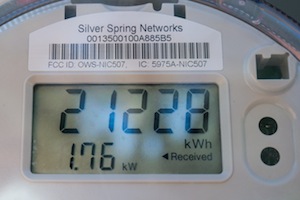
1.76 kW Received indicates that the neighborhood grid is receiving that much power from our solar system.

.000 indicates that our solar panels are producing exactly what our house is using.
We think our shiny new solar panels are an advertisement for efficient energy.
